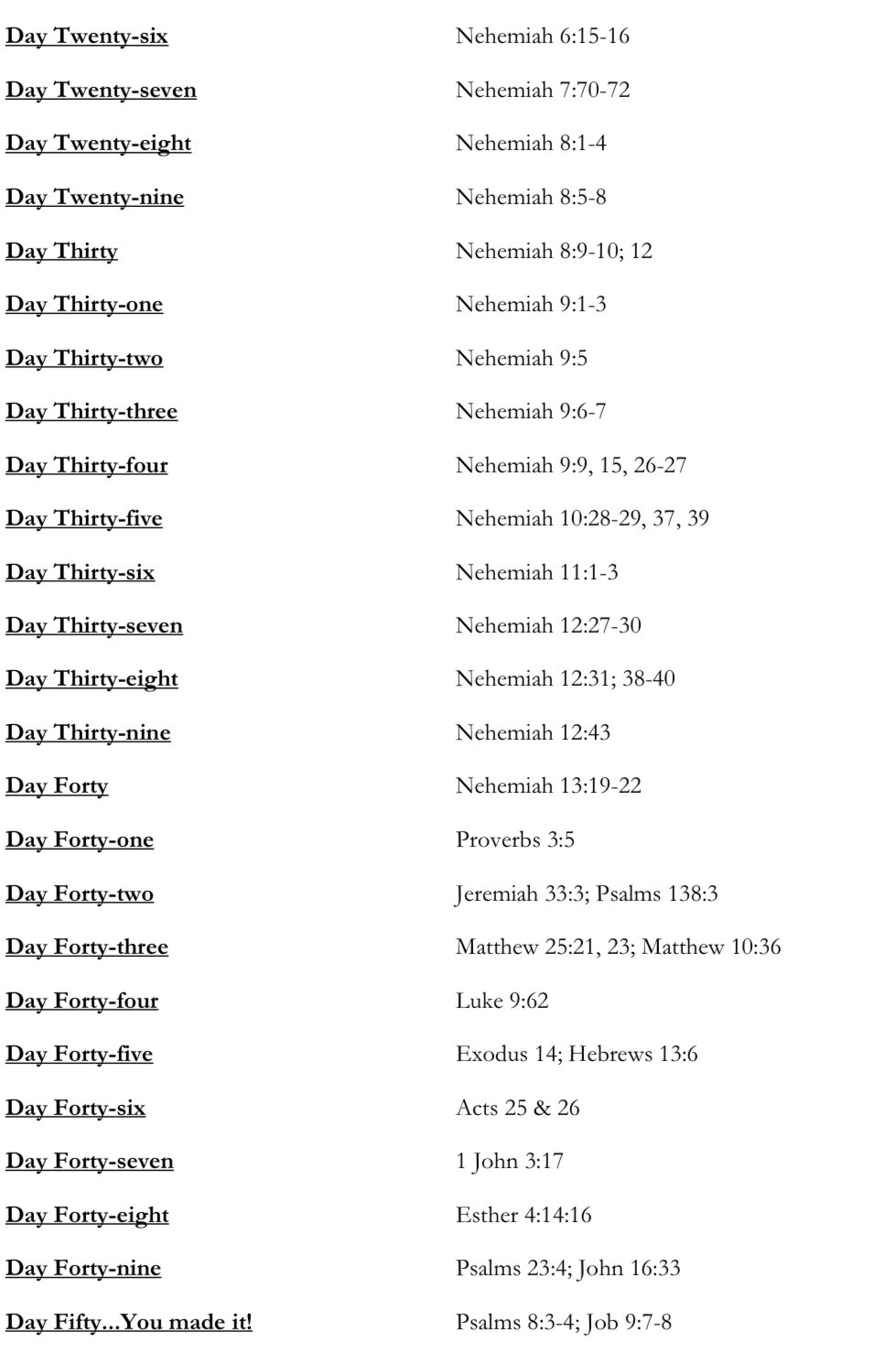50 day Consecration
Beginning, Mon, April 21st 12:01 a.m.
Concluding Tue, June 10th 12:01 a.m.
The 50-day consecration is a partial fast.
Monday, April 21st to Tuesday, June 10th @12 midnight
One meal a day is allowed. That meal can consist of chicken or fish (non-fried). You may have fruit and/or peanuts throughout the day. No junk food, fast food, or fried foods are permitted. Water, 100% juice, and coffee are allowed.
Fasting With Pure Motives
It is important to understand that biblical fasting is always centered on spiritual purposes. Fasting must always be centered on God. (Zechariah 7:5) If our fasting is not unto God than it serves no spiritual purpose. Jesus provided clear instruction as to how we should conduct ourselves during a fast.
Moreover when ye fast, be not, as the hypocrites, of a sad countenance: for they disfigure their faces, that they may appear unto men to fast. Verily I say unto you, they have their reward. But thou, when thou fastest, anoint thine head, and wash thy face; that thou appear not unto men to fast, but unto thy Father which is in secret: and thy Father, which seeth in secret, shall reward thee openly. (Matthew 6:16-19)
Practice of Spiritual Disciplines
Spiritual disciplines are practiced behaviors that facilitate spiritual growth. The process of spiritual growth and development begins to take place when a person encounters God, and God begins to create a new level of consciousness. Applying the disciplines to your life will enable you to develop a more meaningful and loving relationship with God and will provide guidance for your life as a believer. There are several spiritual disciplines that are significant to the believer such as:
Ø Grace
Ø Worship
Ø Silence & Solitude
Ø Celebration
Ø Submission
Ø Study
Ø Prayer
Ø Service
Ø Fasting
Ø Guidance
Ø Meditation
Ø Confession
The purpose of this 50-Day Consecration guide is to focus on the disciplines of prayer, fasting, mediation and studying the Word of God. It is important to understand that while each discipline has its own significance in our walk with Christ, their conjunctive use boldly causes us to enter into the presence of the living God for ourselves. “Everybody thinks of changing humanity and nobody thinks of changing himself.” Let us be among those who believe that the inner transformation of our lives is a goal worthy of our best effort. Let that be your focus during the next 50 days.
The Discipline of Fasting (Mark 9:28-30)
Fasting is an important discipline for those who desire to have a closer with God. One of the most fundamental benefits of fasting is the awareness of our inadequacies and a deeper understanding of God’s sufficiency.
The Discipline of Meditation (Joshua 1:8)
Christian meditation allows us to hear God’s voice so that we can obey His Word. There are various forms of meditation that often involve a degree of solitude. Meditation as it relates to the scripture becomes more than just words on a page. The words become alive to address in our life circumstances. The Word provides instruction for our lives and it needs to come alive in order for it to have the impact that is necessary for us to be transformed. Many of us do not find difficulty in reading the Bible, our difficulty often comes in receiving revelation about what has been read. We often focus on the quantity of reading rather than the quality of what was read. During the next 50 days, practice the discipline of meditation by spending more time with a particular portion of scripture or event. Take time to gain a better understanding of what is written and what purpose it may serve to change your life.
The Discipline of Prayer (James 5:15-17)
Prayer is communication with God. The discipline of prayer requires a commitment to a two way communication between us and God. How do we pray? Matthew 6:9-13 and Luke 11:1-4 provides a template of how to pray.
Ø Adoration - Paying honor, reverence and obedience to God.
Ø Confession – An admission of sins and inadequacies.
Ø Thanksgiving – The aspect of praise that gives thanks to God for what he has done.
Ø Supplication – A humble petition or an earnest request. Prayer is less about us and more about growing closer to God and through regular communication we develop a stronger relationship with Him.
The Discipline of Study (2 Timothy 2:14-16)
The mind is renewed by applying it to those things that will transform it. Study is a specific kind of experience in which through careful attention to reality, the mind is able to move in a particular direction. There are four important steps that are involved in study.
Ø Repetition - Reading the Word of God habitually.
Ø Concentration – Center your mind on the lessons to be learned.
Ø Comprehension - Focus on the knowledge of the truth revealed.
Ø Reflection – Understand the significance of what you have learned and how it could be applied to your life.
There is a difference between the study of scripture and the devotional reading of it. In the study of scripture and its interpretation, the focus should be on gaining an understanding of what it means. Alternatively, in a devotional reading of the scripture the focus should be on how the meaning applies to you. Be careful to understand the meaning of the scripture and the lesson to be learned before bypassing interpretation and moving to application. In your studies always seek transforming truth.
Do’s and Don’ts
Ø Do pray and seek God
Ø Do read your Word
Ø Do refrain from unnecessary social media communication/activity
Ø Don’t hold unnecessary talk/text conversations
Ø Don’t watch television excessively
Ø Don’t listen to the radio excessively


